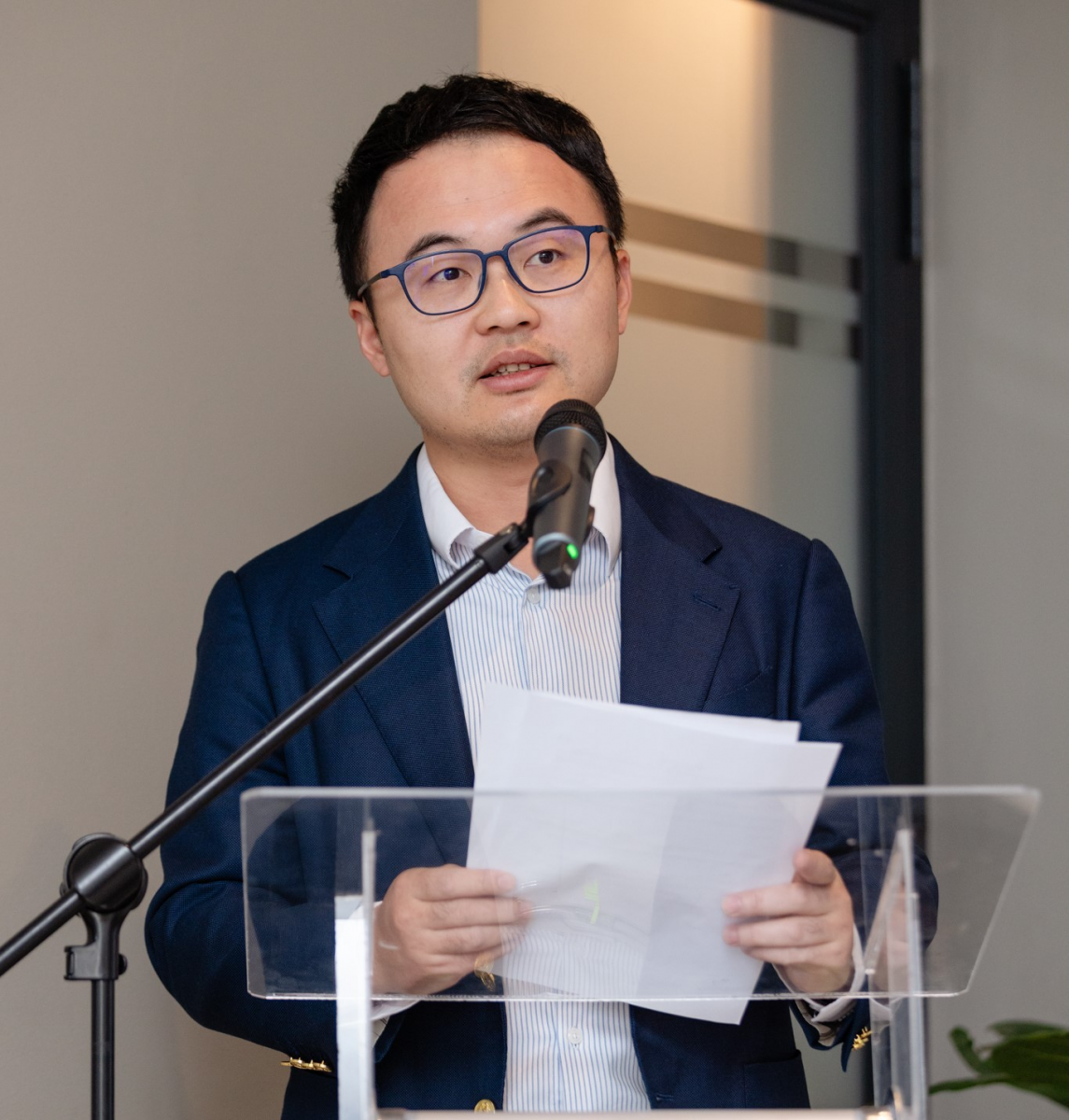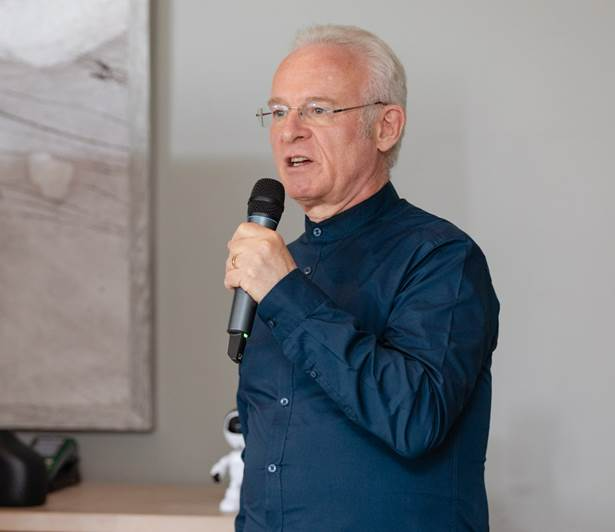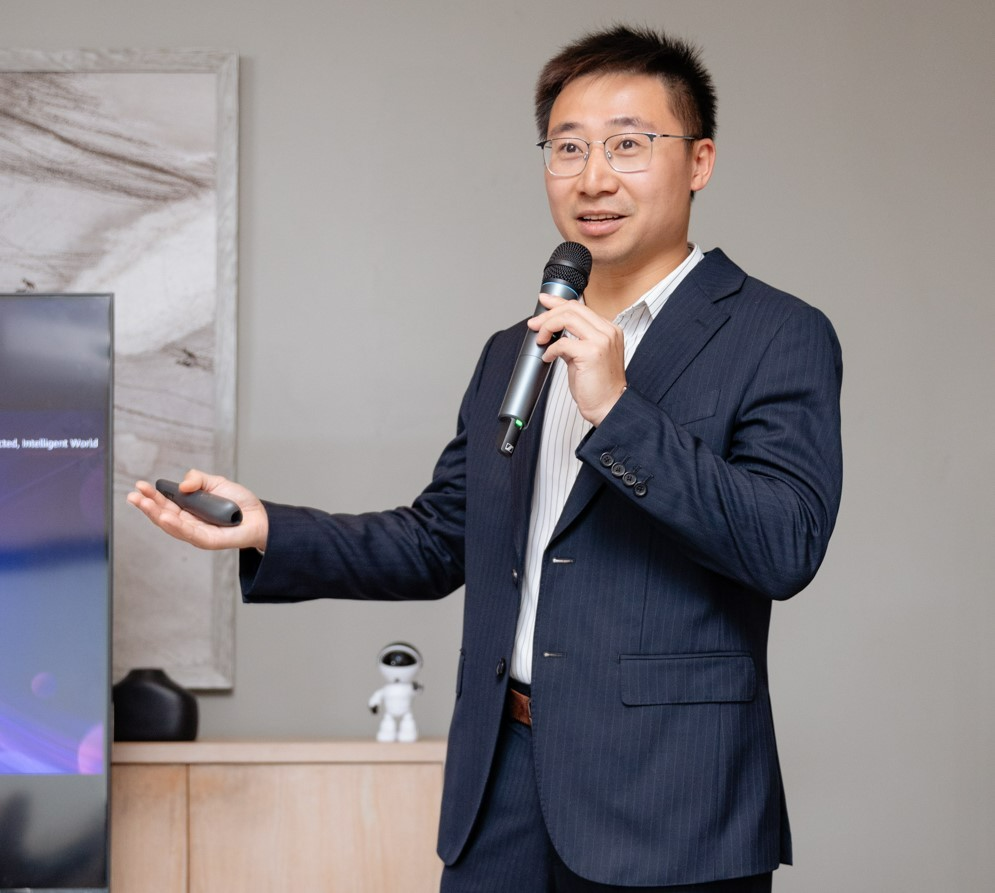Breakthrough developments in artificial intelligence (AI) technologies have sparked conversations about how it will impact society. There is optimism about what can soon be unlocked with AI: from image and data analysis that enables self-driving vehicles, to helping doctors speed up diagnosis and treatment for their patients. AI holds boundless potential for positive change.
This sentiment was reflected and distilled by speakers at the fifth edition of Huawei’s Editors Exchange. Stakeholders from the media came together with leading Huawei experts and youth advocates within the Information and Communications Technology (ICT) sector, under the theme of AI for Humanity: Innovating for Inclusion and Impact.
The event, which was held at the Northcliff Boutique Hotel in Johannesburg, opened the door for lively discussions about the role AI is playing in the South African economy.

Charles Cheng, Deputy CEO Huawei South Africa
In his opening remarks, Huawei South Africa Deputy CEO Charles Cheng said, “AI will be the transformative technology of our times and we believe this event will help participants dig deep and better understand its positive impacts in an economy like South Africa’s”.

Arthur Goldstuck ICT Analyst
The event explored how AI is reshaping industries and empowering communities. Head of research house World Wide Worx Arthur Goldstuck’s keynote address gave a long-term view of the current boom in AI developments.
“What we are seeing today with AI is the result of 75 years of thinking, research and exploration,” he said.
He noted that sectors like agriculture demonstrate, “where AI has probably had the biggest impact on humanity.” Like how AI-enabled drones have led to improvements in crop health, combating pests and measuring soil conditions since the 2010’s.
While there is uncertainty around how AI will impact jobs in different markets, Goldstuck reminded guests that, “AI is there to make us better humans, not to replace us.”
Addressing the appetite and use cases for AI in different industries

Calvin Huang, Head Cloud Solutions Architect at Huawei South Africa
Calvin Huang, Head Cloud Solutions Architect at Huawei South Africa, gave the audience a preview of the AI capabilities developed by Huawei. He introduced the Huawei Pangu model which is now in its third iteration and provides industry-specific solutions to customers using Huawei’s broad range of cloud service products.
Huawei’s research on AI expands into platforms for autonomous cars, enhanced computing power and coding support for research and development workers.
“All of these potential opportunities need to be accelerated with systematic innovation, and that is how Huawei Cloud will play an important role in the AI race,” said Huang.
Huawei’s Pangu weather model exemplifies the company's dedication to AI innovation. “Pangu can predict a typhoon’s path 10 days before it occurs,” said Huang, where today’s methods only forecast up to two days in advance.
In the small to medium business sector, the Pangu model is being developed to help e-commerce vendors advertise their products in different markets with cutting edge language translation models.
As the only cloud vendor providing a full range of public and private cloud services, Huawei is looking forward to, “boosting the AI and digital economy in South Africa.”
How AI can influence job creation in South Africa
Goldstuck’s research, which surveyed 100 South African companies on how they use AI, revealed that 45% are still planning on using it in future while almost a quarter were already using it unofficially.

Aluwani Chokoe, Deputy Director & Spokesperson National Youth ICT Council
Aluwani Chokoe, Deputy Director & Spokesperson of the National Youth ICT Council stressed that young people in South Africa should not be left behind as these industries experience a digital revolution. She commended Huawei South Africa’s work in bridging the digital divide.
“The Huawei ICT Academy is helping the provincial government with ensuring that all the public schools across Gauteng are digitised,” she said.
As an advocate for the impact that digital innovation can have on young South Africans, Chokoe dreams of a future where youth can take advantage of new AI industries that will emerge:
“AI has the potential to stimulate economic growth by increasing productivity, fostering new business models and creating high-value jobs.”
Why people will remain essential as industries embrace AI
Each of the dynamic speakers at the exchange took questions from media guests and reflected on AI’s ability to transform various industries for the better.
Goldstuck acknowledged that AI is not perfect, particularly when it comes to large language models which can make up facts.
He pointed out that as everyone from healthcare to automotive industries integrate AI into their systems, “the machines cannot replace the human, but machines can augment those humans.”

.jpeg)



